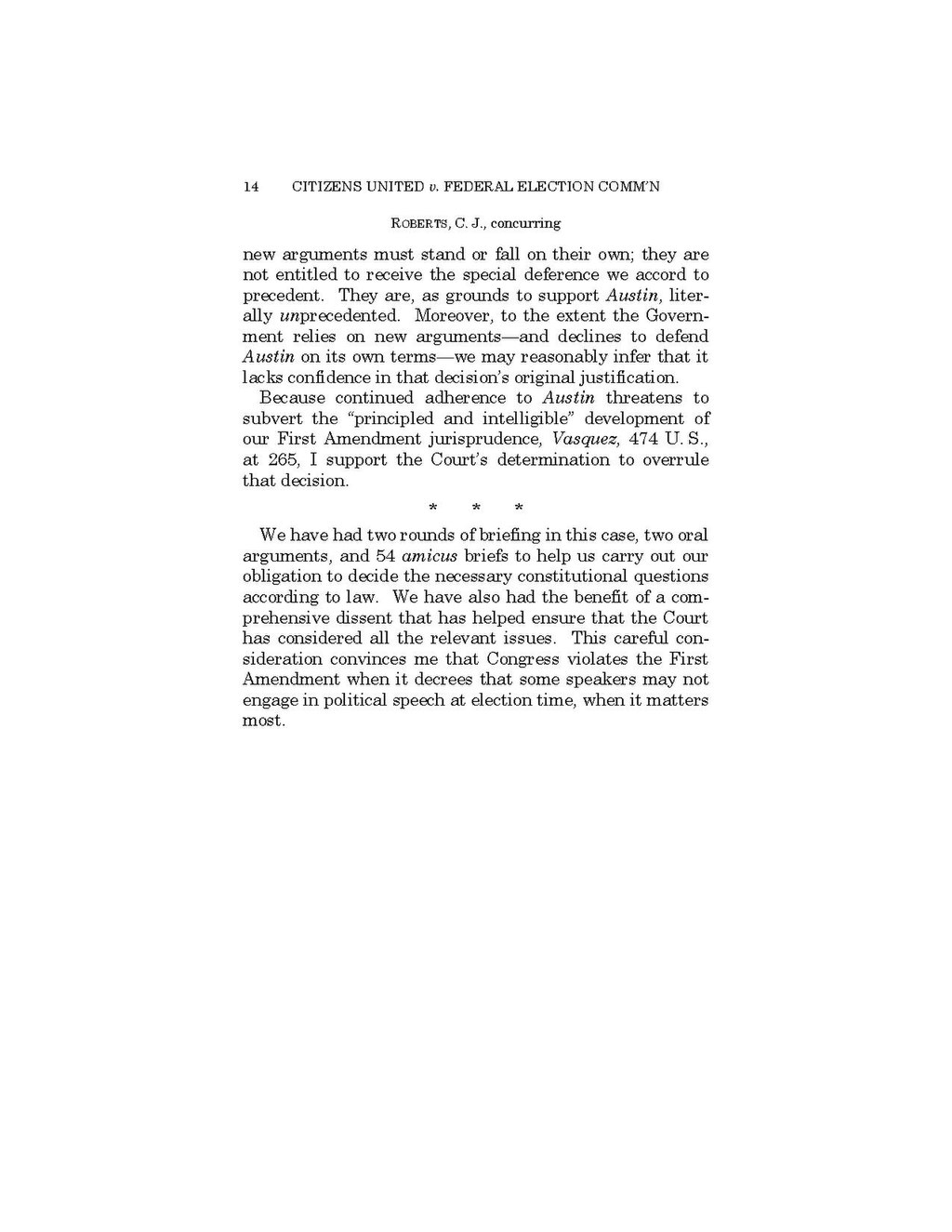new arguments must stand or fall on their own; they are not entitled to receive the special deference we accord to precedent. They are, as grounds to support Austin, literally unprecedented. Moreover, to the extent the Government relies on new arguments—and declines to defend Austin on its own terms—we may reasonably infer that it lacks confidence in that decision’s original justification.
Because continued adherence to Austin threatens to subvert the “principled and intelligible” development of our First Amendment jurisprudence, Vasquez, 474 U. S., at 265, I support the Court’s determination to overrule that decision.
***
We have had two rounds of briefing in this case, two oral arguments, and 54 amicus briefs to help us carry out our obligation to decide the necessary constitutional questions according to law. We have also had the benefit of a comprehensive dissent that has helped ensure that the Court has considered all the relevant issues. This careful consideration convinces me that Congress violates the First Amendment when it decrees that some speakers may not engage in political speech at election time, when it matters most.
